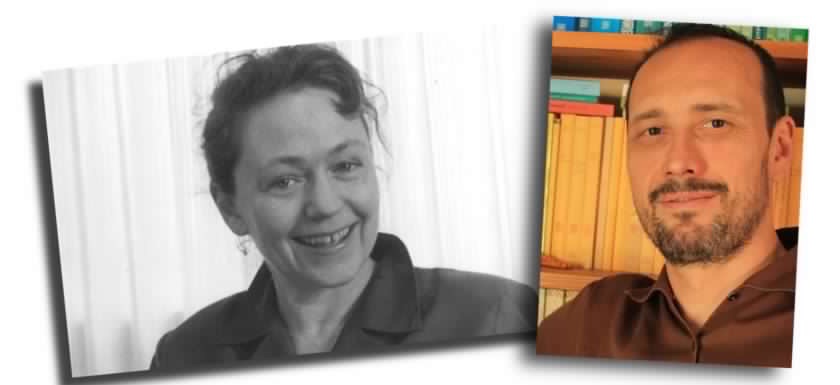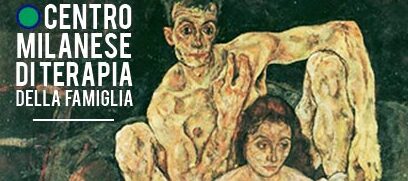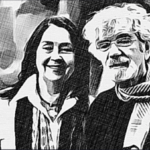
by Gianluca Ganda
(click for italian version)
A few days before the sadly famous 9/11 events, Mary Catherine Bateson kindly accepted to give me this interview. She was in Mantova, taking part in the Festivaletteratura, which is an occasion for writers and academics to interact with the general public. Being a fond reader of the Bateson, I tried to put some questions to the older of Gregory’s daughters. She patiently and politely let me know her point of view on some specific matters.
G: Our era is characterized by multiple voices, but also by very strong guidelines. Your work and your father’s work have attempted to outline the idea of cybernetic ethics, a theory of action in the living world. What can you tell us with regards to this?
MCB: To answer the question I would like to use an example from biology: monoculture, which is the practice of growing a single crop on many fields. In each situation that finds us saying “this is the correct way to go” and everyone has to accept it, we put ourselves in a monoculture position. Nothing else can be permitted, that is the correct theology. This is postulated by the Church, by Mullahs in Afghanistan, by Marxists and by free-market economy in the USA. These are all examples of single truths and monocoltures.
I believe it is important to develop an internal thought mode that allows diversity. A multiple internal conversation like multiplicity in the sea. Macro-power imposes a point of view. But we have the obligation to express different voices, with new modalities, like in painting, in literature, in science or in politics. Through the voice of a poet art becomes a form of communication on the systemic nature of the mind and it is also a feedback.
G: Yes, poetry is essential to describe life.
MCB: If we had to talk about experiences we should not separate them into small little boxes. For this reason even rituals are important. The things I believe, what I think about the universe, I can express by taking part in rituals, even though biologists say that it is nonsense. I am happy and full of gratitude for not having the power to say what happened. I can find one of the many voices inside of me to explain it to me, without being absolutely certain, without being dogmatic or fundamentalist, because I have faith that there will be many other voices that can compensate mine.
G: Instead we have to deal with a culture that is based on linear logic. Dominant cultures create a way of reading the world. Where does this logic come from?
MCB: We can see it in the difference between the Neolithic society and ours: the two have a different organization. The first had small groups of people and did not emphasize property. People lived of hunting and they divided their preys. After agriculture was invented, property became far more important. This entails a confrontation between owners.
The idea was born that “if you have more, I have less”. The epistemology of the zero-sum game is very different. Nowadays we are experiencing a great possibility to defeat this game, represented by the vast information available to all mankind. We can find this in families too: we can communicate and speak in many different ways. A rich conversation is essential.
G: Yet plurality is often nullified by simplification or reduced to fallacy in the everyday life. Is this true in families as well?
MCB: Yes, for example in relationships between men and women. We have to understand how the gender relationship script evolved in the Western culture, and how it twisted both the idea of man and woman.
All of us have to kill some parts of ourselves with the goal of confirming our culture’s stereotypes. Such as the difference between a public sphere for men and a private one for women. This difference requires human beings to do a splitting. Because the two spheres are mixed and merged, we need to connect differences between men and women. We have to participate and take responsibility in a world where many dangerous things are happening.
G: How can we restore novelty and multiplicity in the family?
MCB: One of the things I emphasize in my new book is that the new families are, by definition, full of differences. Once upon a time, with tri-generational families, alongside adults and children there were the elderly. Children were boys and girls of different ages and they could stay interact with elders. But only sometimes families were composed of people who had the same values and spoke the same language.
At the time, the father decided what ideas to pursue and everyone had to accept them; if someone didn’t accept them it was scary. Now families are made of adults and children, often only one child. But now people in a family are allowed to speak and everyone wants to be considered when they communicate; and so the fact that the members of a family have different points of view comes out.
Everyone has a different function in the family. I am talking about the concept of a pluralistic family, in which you can acknowledge the point of view of others.
G: Sometimes it happens that someone is considered “ill” if other members of the family think and agree on the idea that what that member does is wrong.
MCB: I believe it is not a good standpoint to state that everyone has to agree on different points of view or else the family is not healthy and that if that does not happen, someone becomes pathological. This happens, but only if we say that the point of view of others is bad, ill or pathological then they will surely become a patient.
But if this person start suggesting their point of view like a new subject or a new question, it will be necessary to talk about it. When it is being talked about, something new can be reached. If everyone has a different way of seeing things, there is no need for them to become a patient, to feel guilty or punished for this.
G: In other terms in the family it is possible to offer a new series of points of view and the communication on the topic can be similar to a metalogue!
MCB: Actually members of a family are constantly exposed to a multicultural context. And from other families they can learn different ways of seeing the world. It is not always certain that we know what others think and neither that what another person thinks always stays the same. We live among strangers. People are shocked when I say this!
G: It’s like saying that people should be encouraged and animated to feel surprised by new experiences. They are new resources.
MCB: Yes, because getting to know new ways of thinking allows people not to stay always the same. They can change and become something different. They can realize that we live in a multi-universe, we live a multiple truth.
G: It seems a bit similar to the metaphor of Gaia Hypothesis: life is possible in an open system far from balance, with a self-regulating model.
MCB: The Gaia one is a metaphor. At the simplest level it illustrates the auto-correction ability of live beings. But a metaphor facilitates the formation of ideas and questions. A good metaphor induces constant learning. And it can also be a context to summarize information. So the Gaia Hypothesis recalls its various levels that we experience in a biologized world, a sacred process in which we share a community in which we take part.
This metaphor organizes the awareness of interconnection, it suggests that empathy is a way to organize knowledge. For Gregory empathy is a pattern that connects, my similarity to the system.
We have similarities not only with human beings but also with horses and fishes, trees and mushrooms. In this eco-system we have to treat everything with the right respect. For Gregory being aware of the unity of form in life is a sacred connection.
G: Could it happen, though, that some human beings, a family or some groups, chose to isolate themselves in order to maintain their internal coherence and to protect their way of seeing the world?
MCB: Experience has taught us that when nations were divided in many factions, many parties were created. I could observe something similar when I was dean in a college. Black people hung out with black people, and white people hung out with white people. I couldn’t explain how it could be possible. First of all, one of the reasons was that they preferred staying together, because they lived the situation as less stressful and they felt relaxed of being with one another. And while they did this, they found out that they were not similar at all. It’s the best example to explain what happens when two different political parties confront and battle with one another: it is an illusion that every member of a party will agree with everyone else, because everyone is different.
But while they are sitting together they can express and present themselves as individuals.
G: This happens when fear of novelties plays some ugly tricks. So people close up and they try to stick to those relationships that in some way send back the image of themselves.
MCB: If a person goes to another country the natives can call him a “foreigner”, in that they are different from the natives. They see the world in another way, so the “foreigner” can learn a new way to see it, but also they can learn that there is more than one way to see it.
Even when an Italian goes to New York anyone could call them “Italian” and sometimes even expressing a certain disdain. This is also a way to underline cultural differences between different-country groups.
G: So the encounter with diversity puts people in front of the chance to change their epistemology, if they don’t fear to lose their coherence.
MCB: The sense is: I prize my community, I appreciate the traditions of my community, but I am aware of other peoples’ traditions and I am neither afraid nor do I refuse them. I was encouraged to respect diversities and to be curious. Curiosity is so important.
G: The work of Gianfranco Cecchin has allowed us to appreciate how important curiosity is in therapy, in order to know and understand a system, to create a reality with it. This reality can change together with us. Maintaining curiosity can allow for agreement on a possible “truth”. Especially if there is respect for others.
MCB: Youngsters rather often tell me that they feel misunderstood by their parents and by adults. For instance a Chinese student told me how strict her father was. He did not want to listen to her. I suggested that she start talking to him, regards his habits, his ways of seeing the world. She could ask him to talk about how he behaved when he arrived to the USA and how he adapted to a new culture.
G: In order to help others it is necessary to listen. And before they change, I need to change…
MCB: Not only. Talking with her father allowed her to understand how he adjusted to a changing world and what one carries with themselves to communicate through the generational gap. Different cultural groups, such as groups outside families, bear the same type of diversity.
So it is possible to learn how to fill the gap, without there being any need to feel discouraged for the feeling of unfamiliarity, because it is possible to learn to take care of this unfamiliarity even inside one’s own home.
We need to start learning how to deal with differences inside our family. People think that family is a place that one must escape and distance from, but it is not always so clear. A family is a complex interactive system: if we taught people to be prepared for these complexities, they could expect and acknowledge differences everywhere. We need opportunities to be together. Let’s not forget that parents and children born in the same country 30 years apart, are born in two extremely different cultural environments.
G: So family is the first place that generates diversity. To what extent does the relation between generations highlight this difference?
MCB: First of all one can note that life cycles of family members have changed because we live longer. But this entails a change in the way how life cycles of different generations overlap. In the parents’ life the moment when children get married has changed. Many have grandchildren and great grandchildren. This change has an effect on the nature of our interactions. In my last book [ns. Full Circles, Overlapping Lives: Culture and Generation in Transition, 2000, Random House] I try to explain how the relationships between human beings from different generations are a puzzle that needs to be synchronized. The gears of different generations adapt to one another when relationships have changed. The relationship between generations is essential for the transmission and development of human culture.
G: It appears as if inside their family individuals were able to learn a way to love someone deeply without really fully understanding them. Sometimes it is not easy at all, sometimes it doesn’t happen at all. Do we have to take care of families for this? And how? In which social contexts can human abilities and resources emerge? how can we teach people to use their abilities?
MCB: One could be school. Schools are full of terrible ideas! All children are the same age. This is unnatural. They could be mixed with children of different ages.
The older kids could help the younger ones. Parents could be involved, children could teach their parents, for example how to use a computer.
G: It is an uncommon way of teaching, a not banal construction of school and of teaching methods, where everyone can teach and learn in a circular way.
MCB: Yes, schools are designed to reproduce everyone in the same way, by leveling people. Different talents and different characteristics of people could be nurtured and stimulated so that everyone is able to express their best abilities or those that they like the most. The place to start is probably in school.
G: So school “shapes” meaning that it “levels”. And with this it subtracts space to novelty.
MCB: A child under two or three years of age is full of curiosity. One of the things we do in school is to discourage the child’s curiosity. In our schools the only type of difference that is considered revolves around grades: this one scored a hundred, this other only sixty-five. The first is better than the latter.
G: More attention is addressed to quantity, so to speak. It appears as a reinforcement of the zero-sum game. Which could be the immediate effects of this situation?
MCB: For example: there is a child and a teacher and the child gives the wrong answer. If the teacher says “you are stupid” or “you are bad” the child cannot improve and will start to have a bad opinion of themselves.
G: Like in Angel Fears: it is more important to give a positive answer to the pupils regards something they are doing well and to stimulate their questions and curiosity, to find more answers and to see if they are accepted. What can we tell a teacher?
MCB: We can teach a teacher that defining a child as bad or incapable can make the child more incapable, stupid or bad than they really are. When I was a child I wanted to change the garden of the house where I lived. I started moving trees, but those trees died when I planted them in other places.
G: So everyone must look for their own path?
MCB: We can do that, but not always. Certainly it is more difficult without self-esteem and appraisal from others.





